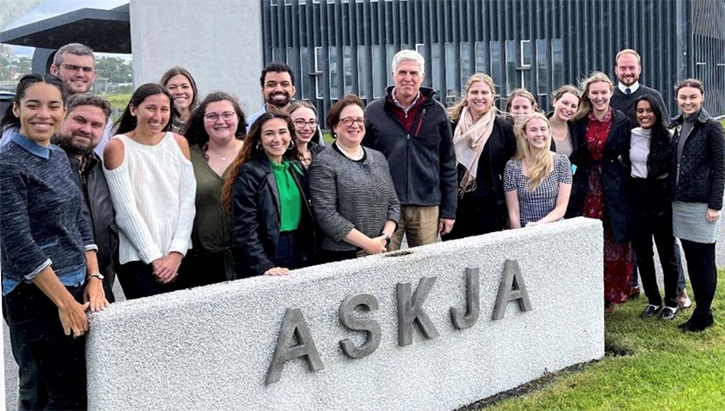Lucky 21 in 2021!

This year, a record-setting 21 Scalia Law graduates have commenced or will shortly commence clerkships with Article III federal judges. “We are proud to see judges from all over the country recognize the talent in our student and alumni body,” says Dean Ken Randall. Throughout the year and in the upcoming clerkship cycles, Scalia Law graduates will clerk on the United States Supreme Court, no fewer than 10 federal appellate courts, 11 federal district courts, the U.S. Court of International Trade, the U.S. Court of Federal Claims, and the U.S. Court of Appeals for Veterans Claims. Graduates will fan out in state trial and appellate courts as well, including courts in Virginia, Maryland, the District of Columbia, Delaware, and Alaska. “There is an undeniable clerkship energy right now,” says Dean Randall.
Historically, Scalia Law places heavy emphasis on research, writing, and analysis skills development, which leads to the perfect law clerk candidate. “The law school curriculum—in particular the continued emphasis on legal writing interwoven into all aspects of the academic program—prepared me to work as a judicial law clerk,” says Caroline Harman Robinson who is clerking for the Honorable Katherine A. Crytzer in the Eastern District of Tennessee. Scalia Law students take four required legal research and writing courses and at least two upper-class writing courses, and typically close to 100 students participate on law journals. Students also can participate in a course focused specifically on clerking: “Legal Writing for Law Clerks,” with adjunct professor Robert Luther III, Of Counsel with Jones Day. And dozens improve their clerkship readiness each year by interning in the field for chambers in the District of Columbia, Virginia, or Maryland.
It is not surprising students get the clerkship bug given the number of federal and state judges directly involved in the law school community. All of the law school’s centers bring judges to campus to learn or teach in special programs and in the classroom. Over a dozen federal and state trial and appellate judges teach in the areas of criminal law, trial practice, and constitutional law, among other areas. Just this year alone, Scalia Law students had the opportunity for intensive summer study with multiple U.S. Supreme Court Justices. Students studied constitutional law matters with U.S. Supreme Court Justices Neil Gorsuch and Elena Kagan through the National Security Institute’s program in Reykjavik, Iceland and with Justice Brett Kavanaugh in the D.C. metro area through the summer course organized by the C. Boyden Gray Center for the Administrative State. “The time and effort these judges put into joining Scalia Law in these summer programs demonstrates their commitment to our school and their investment in our students, which benefits not just the current cohort, but our larger alumni network as well as the bench and the bar overall,” said Jamil N. Jaffer, NSI Founder and Executive Director and Assistant Professor of Law.
Congratulations to all the graduates clerking! For a full list of Scalia Law clerks, please visit our Judicial Clerkship page.